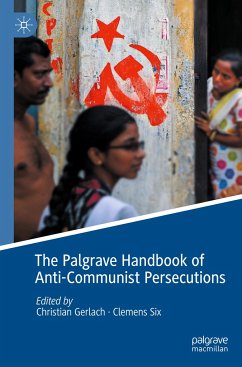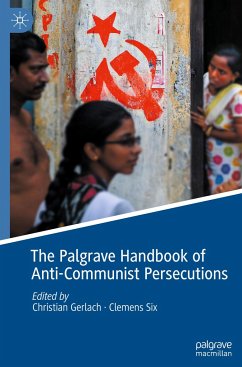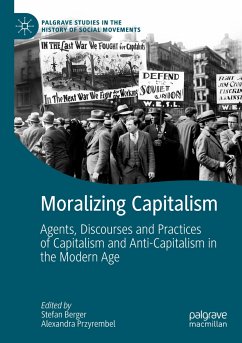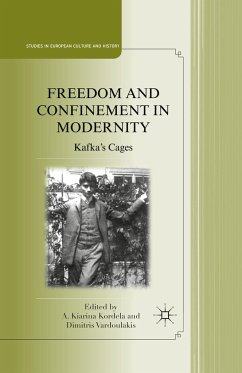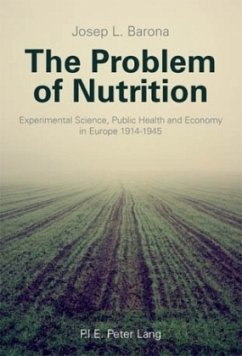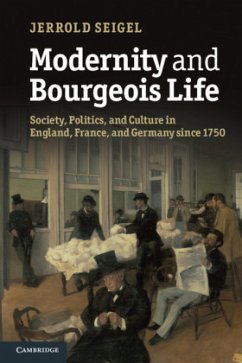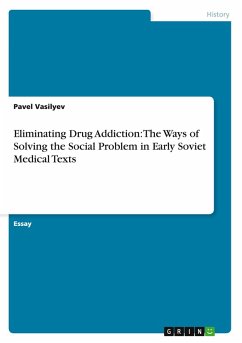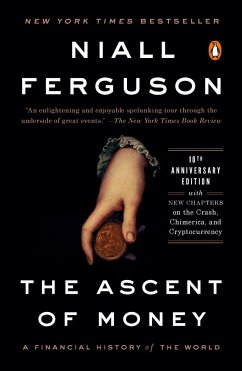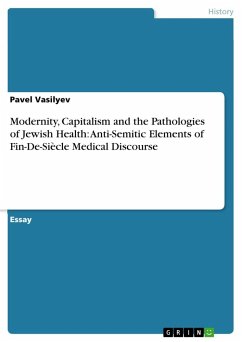
Modernity, Capitalism and the Pathologies of Jewish Health: Anti-Semitic Elements of Fin-De-Siècle Medical Discourse

PAYBACK Punkte
0 °P sammeln!
Essay from the year 2010 in the subject History of Europe - Modern Times, Absolutism, Industrialization, grade: A, University CEU San Pablo Madrid, language: English, abstract: While we are generally eager to recognize the importance of medicine and medical discourse in the contemporary world, it is not always easy to connect the history of medicine with the study of anti-Semitism. Indeed, this topic has received relatively little attention from scholars. However, I will argue that a closer look at the anti-Semitic elements of medical discourse is an important and promising enterprise. If we e...
Essay from the year 2010 in the subject History of Europe - Modern Times, Absolutism, Industrialization, grade: A, University CEU San Pablo Madrid, language: English, abstract: While we are generally eager to recognize the importance of medicine and medical discourse in the contemporary world, it is not always easy to connect the history of medicine with the study of anti-Semitism. Indeed, this topic has received relatively little attention from scholars. However, I will argue that a closer look at the anti-Semitic elements of medical discourse is an important and promising enterprise. If we examine the most notorious manifestation of modern anti-Semitism, the Shoah, we can easily see that it was at least partially prepared and justified by the authority of medical science. In contemporary post-modern world, academics and laymen alike often question the objectivity of science and its ability to coherently explain the world, but for the late 19th and early 20th century Europeans Science was perhaps the highest authority and the main reference point. Accordingly, when the genocide of the Jews was justified scientifically, it became much more difficult to resist it. The focus of this paper is on the same region where the Nazi genocide was planned and carried out (Central Europe) and on the German-language medical discourse (German being arguably the most important language for European scientific discourse for a long period). However, I will concentrate on the period that preceded the Nazi rule (late 19th and early 20th centuries) - and for some reasons. As scholars struggle to comprehend the horrific design of the Holocaust, they come to the understanding that it is impossible to explain the Nazi genocide without looking at the rise and developments of modern anti-Semitism in Wilhelmine Germany (even though it is absolutely necessary to differentiate between the two). This approach was implemented by Shulamit Volkov in her attempt to distinguish "the written matter" and "the spoken word" as well as by some medical history scholars dealing with continuity/discontinuity debate.Accordingly, in this paper I will look at fin-de-siècle German-language medical discourse to locate and analyze anti-Semitic sentiments and critique of Jewish health that were often inherent in it. In particular, I am interested why (and how) various alleged pathologies of Jewish health were associated with modernity and capitalist economy. Additionally, I want to trace the influence that fin-de-siècle medical anti-Semitism had in the later period.




